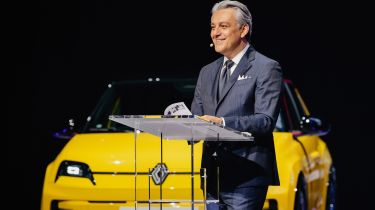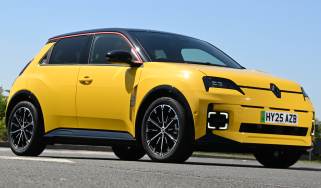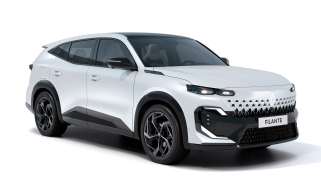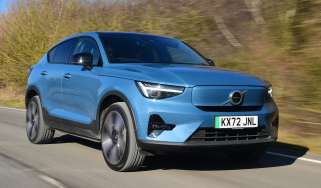Want a new small car? You probably can’t afford one and car bosses blame the EU
Renault and Stellantis bosses demand changes to the emissions rules driving up new car prices

The Renault Clio’s price has soared by 40 per cent over the past 15 years, largely due to EU regulation heaping safety and cleaner engine tech on car makers, says company boss Luca de Meo.
Inflationary pressures have hiked the prices of small Citroëns, Peugeots and Fiats too, so Stellantis boss John Elkann has teamed up with de Meo to campaign for the EU to relax its regulatory grasp. The pair claim the burden threatens Europe’s car manufacturing base and – ironically – slows down the take-up of cleaner tech because fewer consumers can afford them.
Elkann believes there is an “incredible opportunity” to slash emissions “not by focusing on zero emissions for new cars, but how we take down the emissions of the 250 million cars circulating today in the European Union. That is not only good for the overall environment, it’s good for people who want to buy cars but [find them] too expensive, fundamentally driven by regulation.”
The Stellantis boss reckons the average age of Europe’s cars is more than 10-years-old, or 17 years in outlier Greece. If drivers of ageing cars with nastier tailpipe emissions could be persuaded to buy today’s mild hybrids, full hybrids or plug-in hybrids, carbon emissions would drop and local air quality would improve.
The pair spoke together at the Financial Times’ Future of the Car Summit, taking aim at the absolutist nature of EU corporate average fuel economy (CAFE) policy which, like the UK’s ZEV mandate, puts the onus on car makers to sell an increasingly high proportion of electric cars – or face fines for missing CO2 targets.
Both rules have been relaxed in 2025, but Renault and Stellantis argue that law makers should go further. De Meo cited the example of Japan’s kei car policy – introduced post-World War II to nurture the domestic car industry – which reduces tax and insurance on vehicles below 3.4-metres long and tiny petrol engines.
“We want [an incentive] for small cars and small vans because it makes a lot of sense from a business, society and environmental point of view,” said de Meo. He claims European superminis can be unprofitable, which led to the demise of the Ford Fiesta. Getting buy-in from premium car makers in Germany – which lobbied successfully to water down CAFE targets over a decade ago – could be challenging, however.
De Meo argues it’s justifiable on environmental grounds, citing the example of the new Twingo, Renault’s all-electric city car launching in 2026. Its sub-4m size requires less steel, glass and plastic and it should undercut the average European car’s full life carbon impact by 75 per cent. “In the 1980s, 50 per cent of the market was below 4-metres; it’s 5 per cent now,” he said.
While accommodating life-saving safety tech will have triggered some of that growth, car makers have been all too happy to swamp the market with bigger cars and more profitable SUVs, whose extra mass causes higher emissions. And that triggers an arms race to larger cars as owners of smaller cars feel more vulnerable.
Electric cars should be better placed to meet SUV customers’ interior space demands in a more efficient footprint, due to the advantage of not having to package a combustion engine. And EVs have a life cycle emissions advantage over plug-in hybrid and petrol cars, said de Meo, respectively emitting 20, 30 and 60 tonnes of carbon over 10-years/124,000-miles.
Nonetheless the two bosses are arguing for the hegemony of electric tech to end in law makers’ eyes. “The regulation today [states] in 10 years you’ve got to be 100 per cent battery electric vehicle and if you don’t measure [up] you pay a fine. That kind of logic has to be changed,” argued de Meo, who claims he has a quarter of his engineers working on regulatory demands.
“A big step [forward] is to not have the punishment, but the necessity to do a better job and win competitiveness by investing in more than one technology. The principle of technological neutrality has underpinned [every European] regulation since forever – except for cars.”
If the lobbying succeeds, the EU’s hopes of banning sales of new combustion cars in 2035 could be shelved.
Click here for our list of the best small electric cars...





